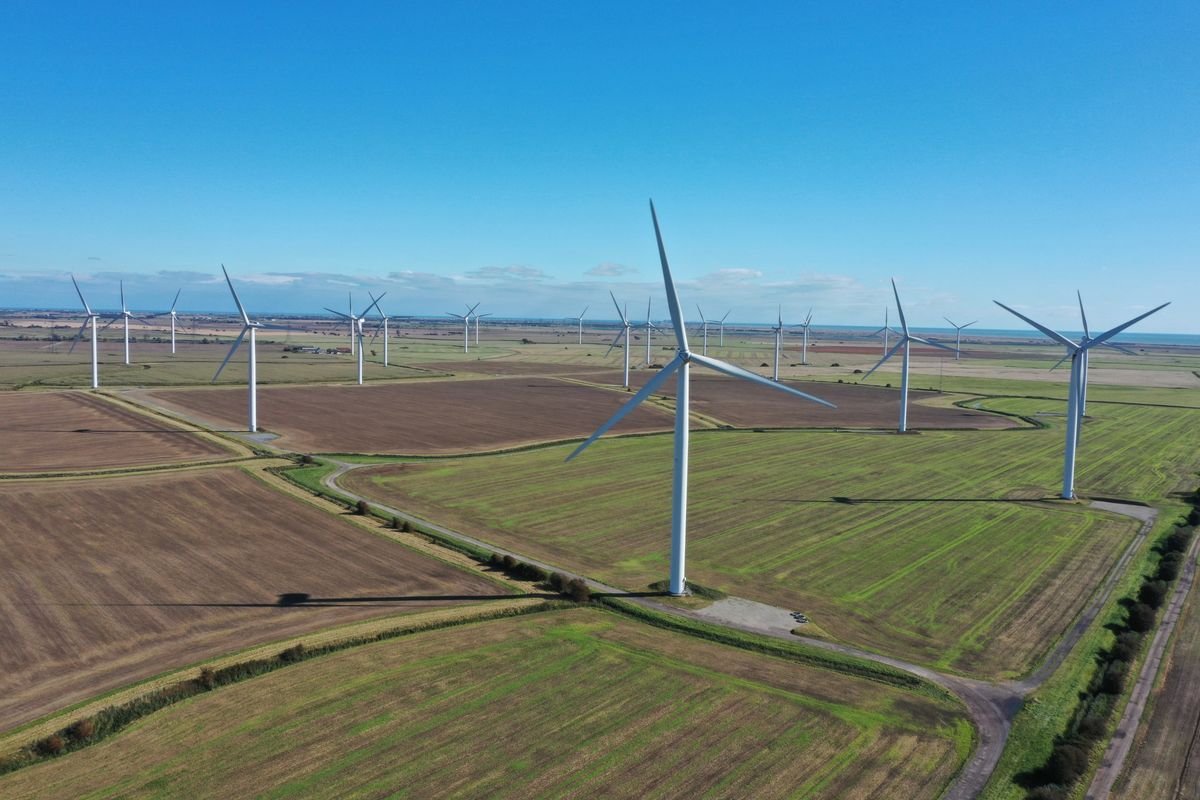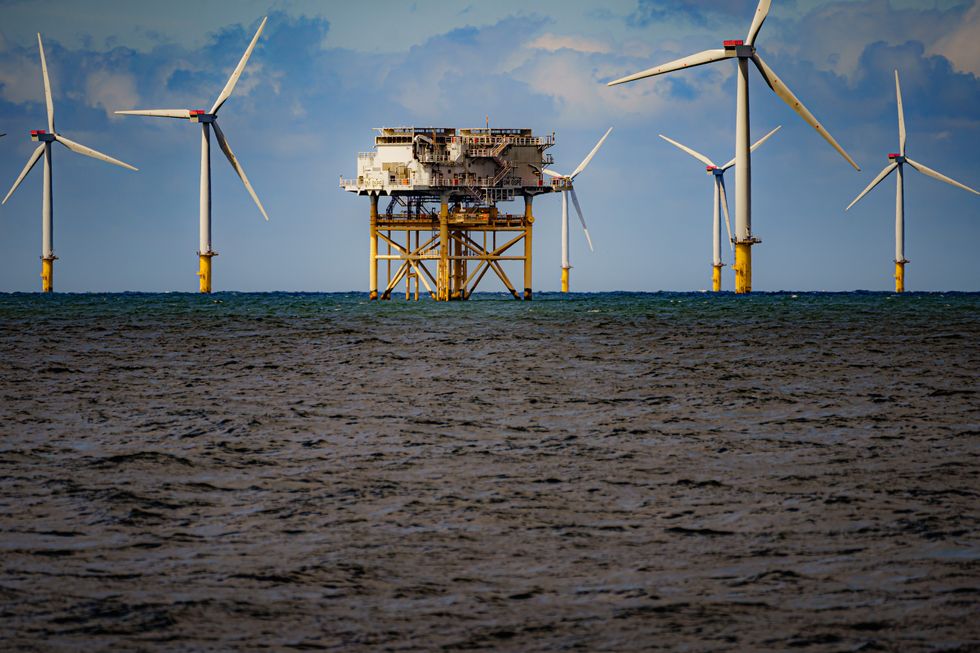Britons to be BRIBED in bid to force new wind farms on local areas

Planning rules regarding farms were changed yesterday, scrapping a previous rule that allowed just one local objection to veto the building of the farms
PA

Planning rules regarding farms were changed yesterday, scrapping a previous rule that allowed just one local objection to veto the building of the farms
Britons have been promised lower energy bills if they agree to the installation of nearby wind farms.
The Government is relaxing planning permission for new onshore wind following pressure from Conservative MPs.
In an attempt to incentivise more projects, the Government has said that communities that support local wind farms could benefit from cheaper energy bills.
The planning rules were changed yesterday, scrapping a previous rule that allowed just one local objection to veto the building of the farms.

Labour Party leader Sir Kier Starmer meets wind turbine technician apprentices
PA
However, the farms still require local consent to go ahead, which could result in demonstrations if residents aren’t happy with the proposed plans.
A group of Tory backbenchers, led by Sir Alok Sharma, president of the COP26 climate talks in Glasgow 2021, campaigned for the end of the de facto ban on the farms that has been in place since 2015.
The backbenchers brought about the changes by amending the Energy Bill, which had its final voting stage in the commons yesterday.
The new changes will also communities to apply to their council if they want wind turbines installed in their area.
Levelling Up Secretary Michael Gove said: “To increase our energy security and develop a cleaner, greener economy, we are introducing new measures to allow local communities to back onshore wind power projects.
“This will only apply in areas where developments have community support, but these changes will help build on Britain's enormous success as a global leader in offshore wind, helping us on our journey to net zero.”
However, despite the relaxation, experts have said that the farms are harder to approve than other projects because residents need to give their approval first.
Sharma and his backbencher rebels had wanted the development of wind turbines on land treated like other renewable schemes, however ministers rejected this.
Gove said: “We need to strike the right balance to ensure that local authorities can respond more flexibly to suitable opportunities for onshore wind energy, contributing to electricity bill savings and increasing our energy security as well as respecting the views of their local communities.”
ENERGY LATEST:

The de facto ban rule, which allows a single objection to overrule the building of the farms, was implemented in 2015 under David Cameron
PA
He added: “We hope that this will mean sites are identified more quickly, speeding up the process of allocating sites for onshore wind projects, and as a consequence more clean and renewable energy is generated sooner.”
Sharma has welcomed the changes, which begin immediately.
“I do understand that some would have liked an even more permissive planning regime, with onshore wind treated like any other infrastructure, but we have to recognise that this has been a contentious issue in the past,” he said.
The de facto ban rule, which allows a single objection to overrule the building of the farms, was implemented in 2015 under David Cameron.
Since then, 27 wind farms have been rejected.
Aurora Energy Research, a consultancy, predicted that 160 extra turbines could be built in England now that the planning rules have been relaxed.